Businesspeople block majority of north Kosovo roads
Members of the northern Kosovo business community blocked most of the roads in the north of the province for two hours Monday.
Monday, 24.12.2012.
14:45

JARINJE Members of the northern Kosovo business community blocked most of the roads in the north of the province for two hours Monday. Those including the integrated crossing Jarinje, close to Raska in central Serbia. Businesspeople block majority of north Kosovo roads They protested over being allowed to import only up to three and a half tons of excise goods in gross weight, including the vehicle, from central Serbia. The Jarinje crossing was also under blockade, where, as of recently, the control of transportation is performed by members of the Serbian Interior Ministry alongside EULEX and Kosovo police. Due to the protest, lines of cars several kilometers long were created waiting to pass. The same road was also blocked in the village of Rudare in the Zvecan municipality. Although it was announced that the Brnjak crossings, located on the road between Ribarice and Zubin Potok, which should become an integrated crossing by the end of the month, would be blocked, it did not happen. The businesspeople also kept streets leading to the village of Suvi Do and the Bosnjacka Mahala neighborhood in the northern part of the city of Kosovska Mitrovica under blockade for two hours. There have been no incidents during these protests. Tihomir Djelosevic, one of the businessmen from Leposavic, said on Monday that the dialogue in Brussels had only partially resolved the problems facing his colleagues in the north. Djelosevic told reporters at Jarinje that they faced problems with the imports of goods to the north of the province because a gross, rather than net weight of imported excise goods must not exceed three and a half tons. “This protest is also aimed at pointing to the situation in northern Kosovo. The customs and the crossings are not the only problems, as we want to remain citizens of Serbia, and therefore we want to be paying duties to Serbia lest we be called criminals or smugglers,” he said. Businessman Dragan Nedeljkovic, also from Zvecan, told reporters that some stores in the north were already running out of excise goods, which was particularly true of oil and oil products. "Our demand is that we are permitted to proceed with imports of any goods without any hindrance, just as we have been doing until recently, as we cannot function in this way," said Nedeljkovic. The official implementation of the agreement between the Belgrade and Pristina working group teams, under which goods exempt from paying excise tax and excise goods in vehicles up to three and a half tons in gross weight are not to be cleared while entering northern Kosovo, kicked off last Thursday. A view of Jarinje (B92, file) Vulin reacts Aleksandar Vulin, director of the Serbian government's Office for Kosovo and Metohija, stated on Monday that he understands the concern of businessmen in north Kosovo, and that he hopes that the next meeting between Ivica Dacic and Hashim Thaci will resolve the problem of transfer of goods over the administrative crossings. Under the agreement on customs duty collection at integrated crossings reached by the working groups of Belgrade and Pristina in Brussels, which was enforced at the Jarinje administrative crossing on Thursday, vehicles carrying goods that are not subject to excise tax will be able to enter northern Kosovo without clearance, which also applies to excise goods weighing up to three and a half tons. Vulin told reporters in the Palace of Serbia that the provision on the transfer of goods weighing three and a half tons is debatable, and that this is particularly obvious in terms of oil and its derivatives. “There are almost no cisterns of three and a half ton capacity,” Vulin said, adding that it is very difficult to transfer three and a half tons, even if it were sparkling water. "The Albanian side has a policy of excises because it does not have an economy," he said. “Nothing is working in Kosovo and Metohija, and therefore they are imposing excises on everything, even on sparkling water. For this reason, this so-called state is unsustainable,” he said. Vulin said that the Brussels agreement is binding, and that Serbia will implement it. “We will continue to implement the agreement, and I hope that on January 17 when Prime Minister Dacic confers with Thaci, this problem will be resolved,” he said. Vulin said that the limitations, which are being imposed at the crossing points, can be an important economic problem. He expressed concern about the supply of citizens in north Kosovo, adding that he is certain that Monday's protests staged by north Kosovo businessmen will be peaceful, adding that it is crucial that they are not directed either against the government or citizens of Serbia. Vulin said that dissatisfaction should be clearly voiced so that the EU representatives and world officials could understand that a problem exists. Tanjug
Businesspeople block majority of north Kosovo roads
They protested over being allowed to import only up to three and a half tons of excise goods in gross weight, including the vehicle, from central Serbia.The Jarinje crossing was also under blockade, where, as of recently, the control of transportation is performed by members of the Serbian Interior Ministry alongside EULEX and Kosovo police.
Due to the protest, lines of cars several kilometers long were created waiting to pass. The same road was also blocked in the village of Rudare in the Zvečan municipality.
Although it was announced that the Brnjak crossings, located on the road between Ribariće and Zubin Potok, which should become an integrated crossing by the end of the month, would be blocked, it did not happen.
The businesspeople also kept streets leading to the village of Suvi Do and the Bošnjačka Mahala neighborhood in the northern part of the city of Kosovska Mitrovica under blockade for two hours. There have been no incidents during these protests.
Tihomir Đelošević, one of the businessmen from Leposavić, said on Monday that the dialogue in Brussels had only partially resolved the problems facing his colleagues in the north.
Đelošević told reporters at Jarinje that they faced problems with the imports of goods to the north of the province because a gross, rather than net weight of imported excise goods must not exceed three and a half tons.
“This protest is also aimed at pointing to the situation in northern Kosovo. The customs and the crossings are not the only problems, as we want to remain citizens of Serbia, and therefore we want to be paying duties to Serbia lest we be called criminals or smugglers,” he said.
Businessman Dragan Nedeljković, also from Zvečan, told reporters that some stores in the north were already running out of excise goods, which was particularly true of oil and oil products.
"Our demand is that we are permitted to proceed with imports of any goods without any hindrance, just as we have been doing until recently, as we cannot function in this way," said Nedeljković.
The official implementation of the agreement between the Belgrade and Priština working group teams, under which goods exempt from paying excise tax and excise goods in vehicles up to three and a half tons in gross weight are not to be cleared while entering northern Kosovo, kicked off last Thursday.
Vulin reacts
Aleksandar Vulin, director of the Serbian government's Office for Kosovo and Metohija, stated on Monday that he understands the concern of businessmen in north Kosovo, and that he hopes that the next meeting between Ivica Dačić and Hashim Thaci will resolve the problem of transfer of goods over the administrative crossings.Under the agreement on customs duty collection at integrated crossings reached by the working groups of Belgrade and Priština in Brussels, which was enforced at the Jarinje administrative crossing on Thursday, vehicles carrying goods that are not subject to excise tax will be able to enter northern Kosovo without clearance, which also applies to excise goods weighing up to three and a half tons.
Vulin told reporters in the Palace of Serbia that the provision on the transfer of goods weighing three and a half tons is debatable, and that this is particularly obvious in terms of oil and its derivatives.
“There are almost no cisterns of three and a half ton capacity,” Vulin said, adding that it is very difficult to transfer three and a half tons, even if it were sparkling water.
"The Albanian side has a policy of excises because it does not have an economy," he said.
“Nothing is working in Kosovo and Metohija, and therefore they are imposing excises on everything, even on sparkling water. For this reason, this so-called state is unsustainable,” he said.
Vulin said that the Brussels agreement is binding, and that Serbia will implement it.
“We will continue to implement the agreement, and I hope that on January 17 when Prime Minister Dačić confers with Thaci, this problem will be resolved,” he said.
Vulin said that the limitations, which are being imposed at the crossing points, can be an important economic problem.
He expressed concern about the supply of citizens in north Kosovo, adding that he is certain that Monday's protests staged by north Kosovo businessmen will be peaceful, adding that it is crucial that they are not directed either against the government or citizens of Serbia.
Vulin said that dissatisfaction should be clearly voiced so that the EU representatives and world officials could understand that a problem exists.












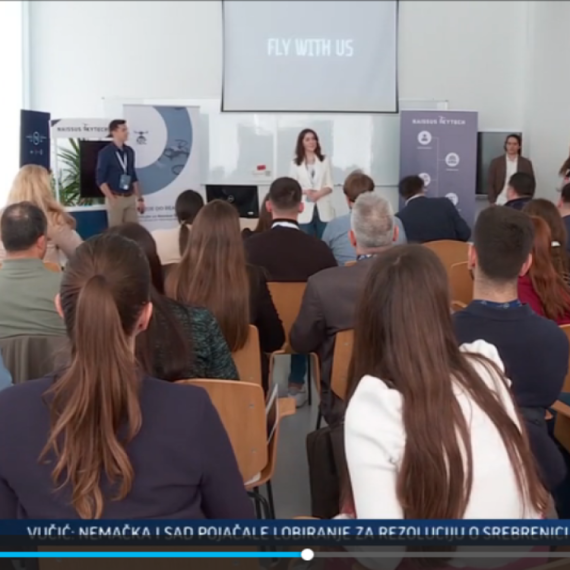
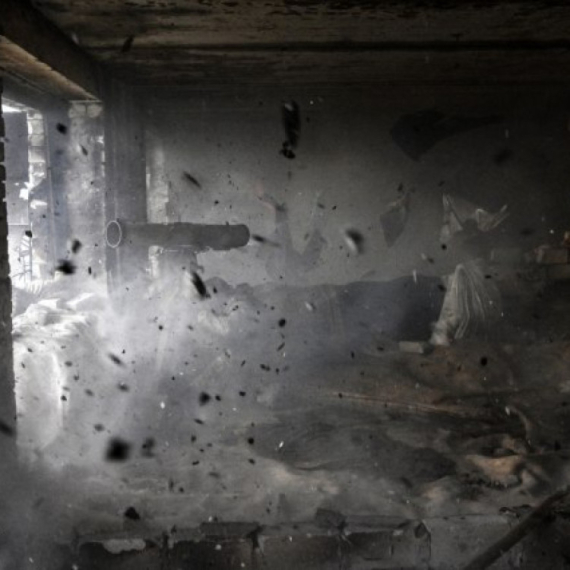

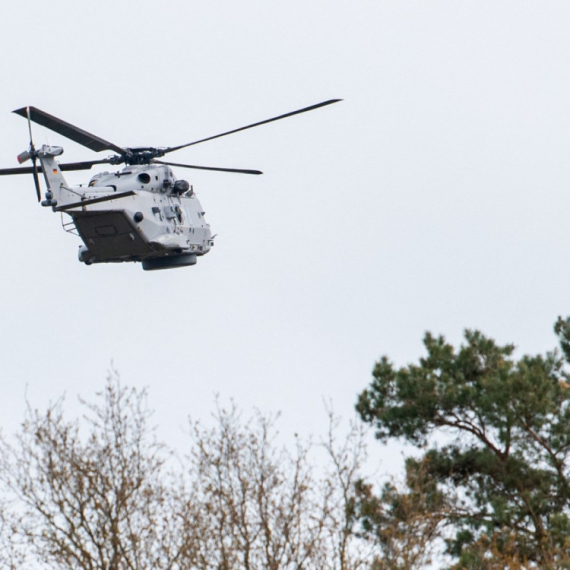

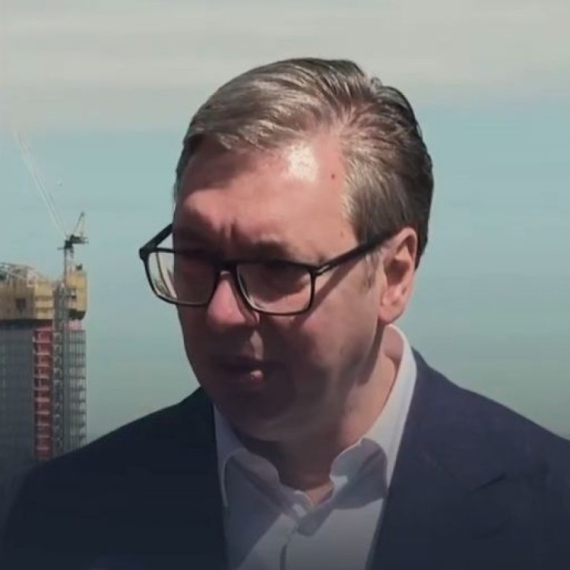

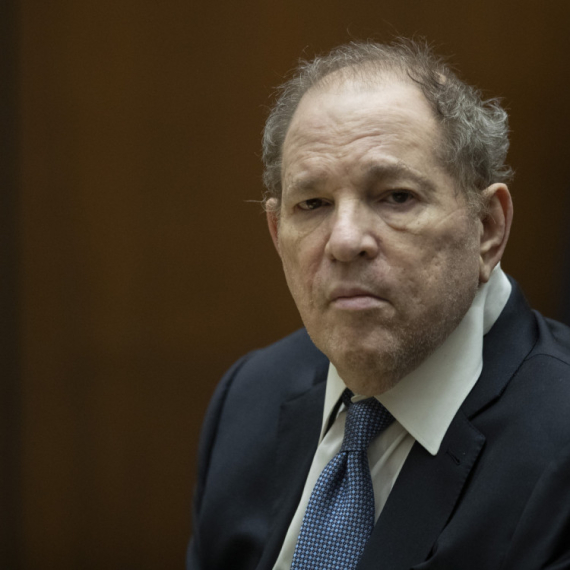






































Komentari 7
Pogledaj komentare